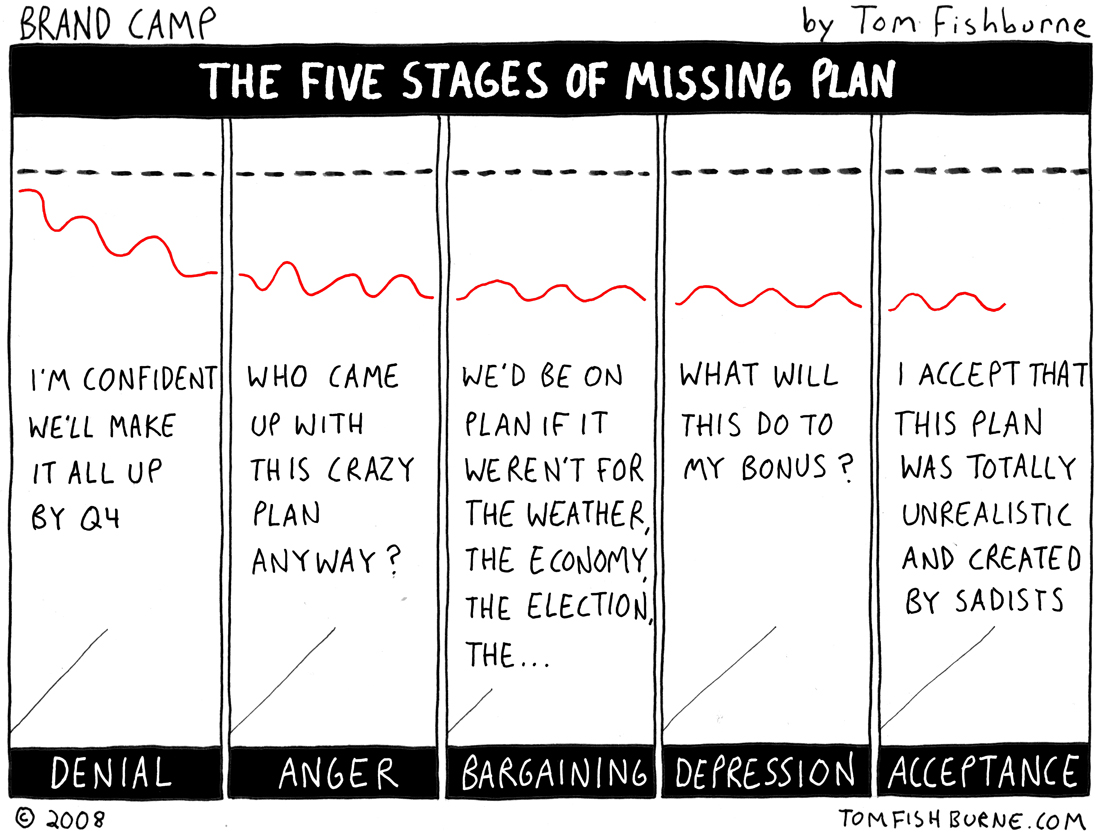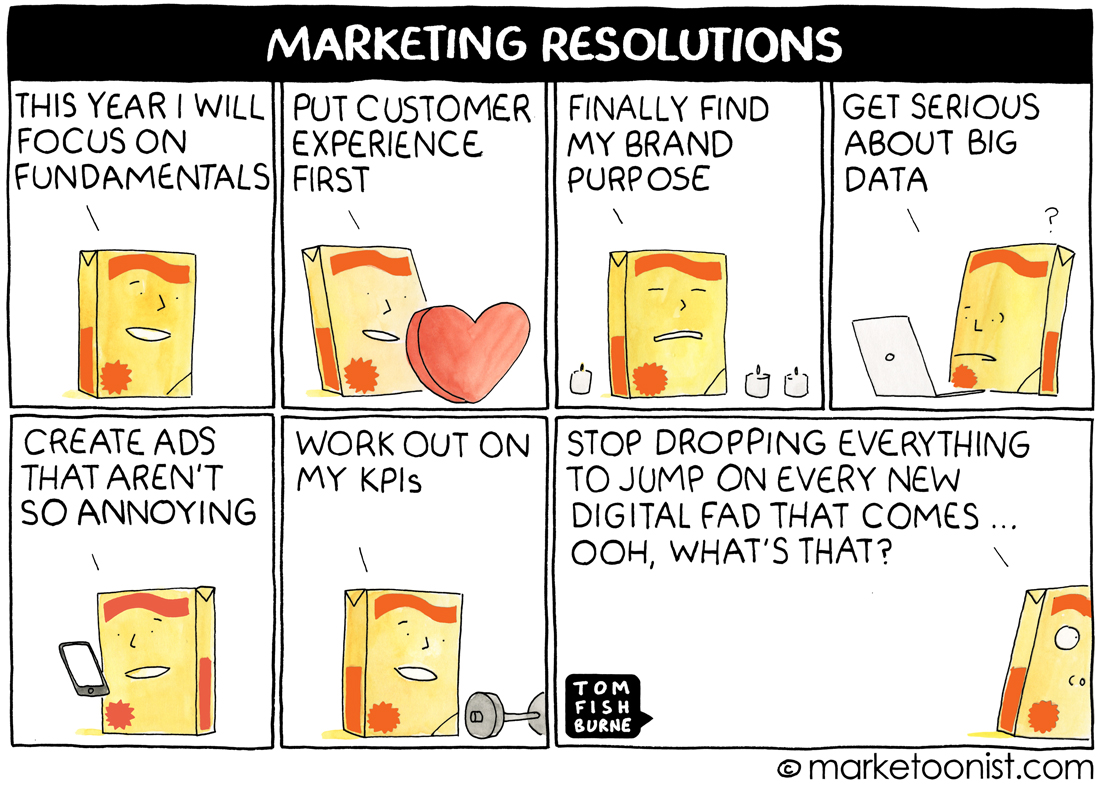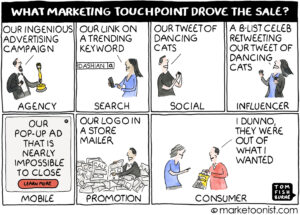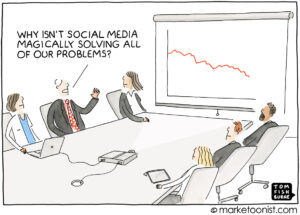It’s the time of year to make vague resolutions that we’ll forget by February. According to Statistic Brain, 45% of Americans make New Year’s resolutions and only 8% of those are actually successful.
I think marketing teams often follow the same pattern. We start off the year with big ideas and good intentions and then get distracted. It’s easy to lose sight of the fundamentals in favor of the shiny new thing. This is particularly true when it comes to digital.
Lately I’ve been thinking about the concept of “post-digital marketing” — that digital should not be treated as a separate silo, but instead as an integral part of every aspect of marketing. MarketingWeek columnist Mark Ritson even argues that the term “digital marketing” is redundant:
“The only way to prosper in the decade ahead and negotiate the massive changes that the digital era has ushered into our fair discipline is, paradoxically, to approach your 2016 marketing strategy with absolutely no reference to the D word at all.”
HSBC CMO Amanda Rendle encouraged her marketing teams to ban the word “digital” to help them the ink beyond organizational silos and remember the fundamentals of marketing.
“We need to go back to what marketing is, and the product is marketing. More people need to remember that, get off the drug of digital being something separate and get back to what we do best.”
As we get into 2016, I think there’s an opportunity for brands to return to a focus on fundamentals. And if we want a shot at making our marketing resolutions actually come true, we’ll have to build them into our plans.
On that topic, here’s one of my favorite cartoons from a few years ago:




BC says
For the past 10 years (or longer), it’s been fun to watch one bandwagon after another marching by — like a parade where you get excited about the float in front of you until there’s a *new* float in front of you.
There’s always a desire to find some “silver bullet” which is the one great idea which will drive success. Early adopters to any of the ongoing list of new concepts will benefit from some point of uniqueness for a while but the benefits of digital are also its weakness — everybody can do it and it all happens fast. So “uniqueness” is fleeting, or hyper-fleeting, these days.
Marketing is marketing, digital is just one tool for us to leverage but bad marketing done digitally is still bad marketing — well, at hyper-speed, I suppose.
To be clear, when I say Marketing, I mean it in the broadest sense — not just advertising or clever promotional games but overall consideration from the consumer perspective. Digital is one delivery system and of course, opening new opportunities for true one-to-one relationship acquisition and development. But making the most of the tool still requires understanding the “why” before considering the “how”.
And clearly it cannot, should not, be thought of as some separate activity unto itself. I can’t even understand how it works to think of digital as a “separate silo”.